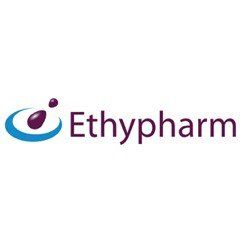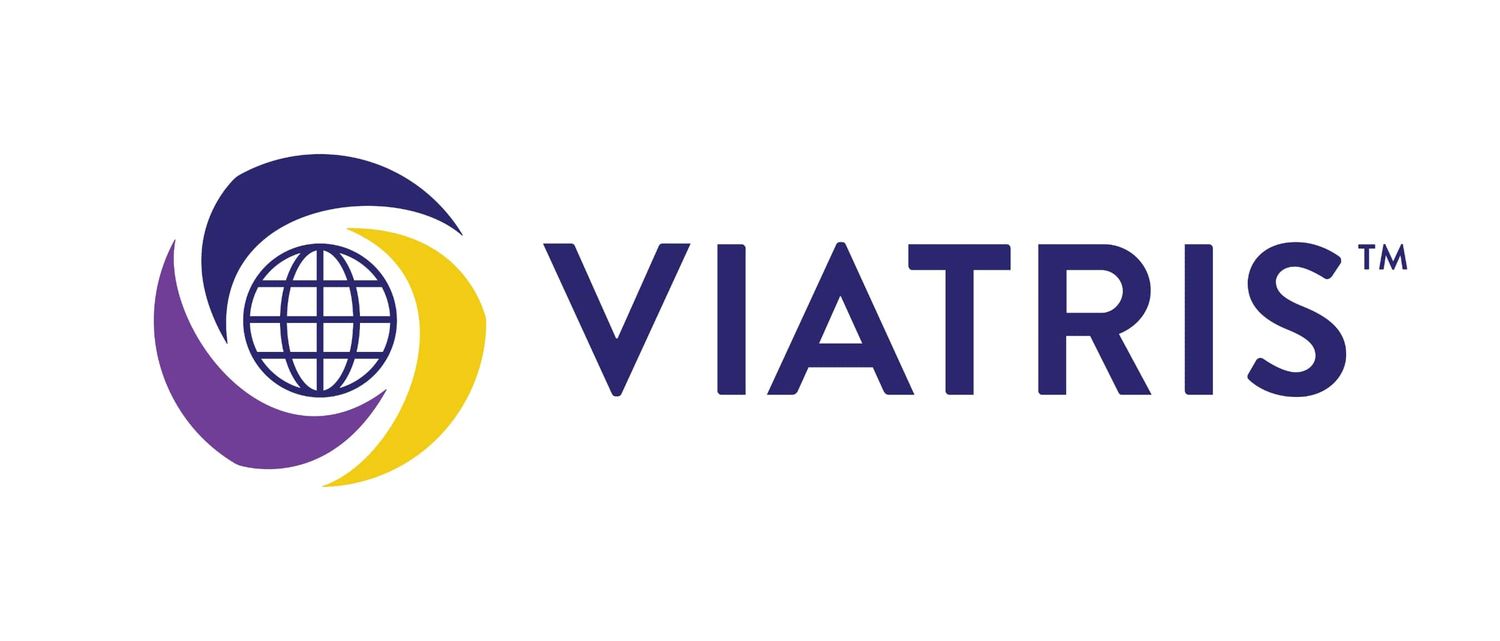预约演示
更新于:2025-08-04
Nicergoline
尼麦角林
更新于:2025-08-04
概要
基本信息
原研机构- |
非在研机构 |
权益机构- |
最高研发阶段批准上市 |
最高研发阶段(中国)批准上市 |
特殊审评- |
登录后查看时间轴
结构/序列
分子式C24H26BrN3O3 |
InChIKeyYSEXMKHXIOCEJA-FVFQAYNVSA-N |
CAS号27848-84-6 |
关联
32
项与 尼麦角林 相关的临床试验CTR20241708
健康成年受试者空腹和餐后状态下单次口服尼麦角林片的随机、开放、单剂量、四周期、完全重复交叉设计的生物等效性试验
主要研究目的:研究空腹和餐后状态下单次口服受试制剂尼麦角林片(规格:30mg,华润双鹤利民药业(济南)有限公司生产)与参比制剂尼麦角林片(Sermion®,规格:30mg,Pfizer Italia S.r.l.生产)在健康成年受试者体内的药代动力学,评价空腹和餐后状态口服两种制剂的生物等效性。
次要研究目的:评价健康受试者在空腹和餐后状态下,单次口服尼麦角林片受试制剂和参比制剂后的安全性。
开始日期2024-06-22 |
申办/合作机构 |
CTR20234046
健康受试者餐后状态下单次口服尼麦角林片的生物等效性试验
主要目的:研究餐后状态下单次口服受试制剂尼麦角林片(规格:30mg,华润双鹤利民药业(济南)有限公司生产)与参比制剂尼麦角林片(商品名Sermion ®,规格:30mg,Pfizer Italia S.r.l. 生产)在健康成年受试者体内的药代动力学,比较受试制剂和参比制剂药代动力学的差异,同时计算主要药动学参数(Cmax、AUC0-t和AUC0-∞),并进行初步比较。
次要研究目的:评价健康受试者在餐后状态下,单次口服尼麦角林片受试制剂和参比制剂后的安全性。
开始日期2023-12-12 |
申办/合作机构 |
CTR20233222
健康成年受试者空腹和餐后状态下单次口服尼麦角林片的生物等效性试验
主要研究目的: 研究空腹和餐后状态下单次口服受试制剂尼麦角林片(规格:10mg,海南通用三洋药业有限公司生产)与参比制剂尼麦角林片(Sermion®,规格:10mg,Pfizer Italia S.r.l.生产,Upjohn EESV持证)在健康成年受试者体内的药代动力学,评价空腹和餐后状态口服两种制剂的生物等效性。
次要研究目的: 评价健康受试者在空腹和餐后状态下,单次口服尼麦角林片受试制剂和参比制剂后的安全性。
开始日期2023-11-06 |
申办/合作机构 |
100 项与 尼麦角林 相关的临床结果
登录后查看更多信息
100 项与 尼麦角林 相关的转化医学
登录后查看更多信息
100 项与 尼麦角林 相关的专利(医药)
登录后查看更多信息
817
项与 尼麦角林 相关的文献(医药)2025-06-27·Zhurnal nevrologii i psikhiatrii imeni S.S. Korsakova
Features of care of patients with cardiovascular diseases and cognitive disorders
Review
作者: Kochetkov, A.I. ; Ostroumova, O.D. ; Litvinova, S.V.
Due to the increase in life expectancy of the population, the proportion of people with cognitive impairment (CI) is also increasing. Today, it is known that cardiovascular diseases (CVD) are a significant risk factor for the development of CI. At the same time, the main substrate of CVD, including cerebrovascular events, is atherosclerosis. Statins are one of the most studied classes of drugs in the prevention of CVD. Atorvastatin (Liprimar) is one of the most studied and most frequently prescribed statins that has proven its effectiveness and safety in patients with a wide range of cardiovascular pathology. CI, in turn, lead to a decrease in functional autonomy, ability to work and adherence to treatment, thereby closing the vicious circle. Thus, therapy for CI should be initiated as early as possible, since they are a progressive disorder that eventually transforms into dementia. One of the drugs that has been used for 50 years for symptomatic therapy of CI, including dementia, chronic cerebrovascular and organic brain damage, is nicergoline (Sermion).
2025-04-01·JOURNAL OF COLLOID AND INTERFACE SCIENCE
Low-frequency Raman spectroscopy as a new tool for understanding the behaviour of ionisable compounds in dispersed mesophases
Article
作者: Krog, Lasse S ; Boyd, Ben J ; Kihara, Shinji ; Mota-Santiago, Pablo ; Bērziņš, Kārlis ; Foderà, Vito
HYPOTHESIS:
Low-frequency Raman (LFR) spectroscopy is proposed as a novel non-destructive methodology to probe pH-related phase transitions in self-assembled lipid particles. In this case, dispersed lipid mesophases were composed of ionisable oleic acid (OA) or nicergoline (NG) in monoolein (MO). The sensitivity of LFR spectroscopy to low-energy intermolecular vibrations was hypothesised to be due to structural transformation in ionisable dispersed mesophases upon changes in pH.
METHOD/EXPERIMENT:
Phase transitions of dispersed mesophases of MO mixed with OA or NG were induced by varying the pH of the aqueous buffer. The structural transformations were studied using LFR spectroscopy, recording the corresponding changes in the vibrational density of states (VDOS) upon changes in pH and analysed using principal component analysis (PCA). The results were correlated with structural transitions observed in simultaneous small-angle X-ray scattering (SAXS) measurements.
FINDINGS:
The intensity of the VDOS signal of MO + OA mesophases scaled with phase-specific transformations, such as from the bi-continuous cubic Im3¯m phase (V2) or lamellar-based vesicles to the reversed hexagonal p6m phase (H2). For NG subtle changes in the lattice parameter of the V2 phase of NG + MO mesophases coincided with the apparent dissociation constant (pKaapp) of NG, however, slight variations between the pKaapp of NG determined by equilibrated samples analysed using SAXS and non-equilibrated samples analysed using LFR suggest structural hysteresis upon changes in the protonation state of NG. This approach offers an efficient method for studying the phase behaviour of lipid systems under varying pH and potentially other conditions such as temperature.
2025-01-01·Therapeutic Advances in Neurological Disorders
Drug-induced dementia: a real-world pharmacovigilance study using the FDA Adverse Event Reporting System database
Article
作者: Xu, Lisi ; Zhang, Ruonan ; Zhang, Xiaolin ; Shang, Xiuli ; Huang, Daifa
Background::
Dementia is a serious adverse event (AE) that requires attention in clinical practice. However, information on drug-induced dementia is limited. The U.S. FDA Adverse Event Reporting System (FAERS) serves as an important resource for identifying real-world adverse drug reactions and safety signals.
Objective::
This study aimed to use FAERS data to identify drugs associated with increased dementia risk.
Design::
A secondary analysis of the FAERS database was conducted using disproportionality analysis methods.
Methods::
We reviewed dementia-related reports in the FAERS database from the first quarter of 2004 to the fourth quarter of 2023, used the Medical Dictionary for Regulatory Activity to identify dementia cases and summarized the corresponding list of potential medications, counted the dementia-causing medication classes with the highest frequency of reports, and disaggregated all medications.
Results::
The study identified 31,881 dementia-related AEs in the FAERS database, with an increasing trend over time, particularly among females and individuals over 65. Apixaban had the most reports (1631). Disproportionality analyses revealed that rivastigmine, nicergoline, aducanumab, amlodipine/atorvastatin, and dihydroergometrine had the highest risk, based on reporting odds ratio, proportional reporting ratio, and information component. Only valproate and tramadol among the top 50 drugs included a potential dementia risk in their package inserts.
Conclusion::
This study identified a list of medications associated with dementia risk, many of which lack dementia warnings on their labels. Increased monitoring is necessary for high-risk individuals, and further research is required to clarify these associations and improve patient safety.
68
项与 尼麦角林 相关的新闻(医药)2025-08-03
·信狐药迅
每周药品注册获批数据,分门别类呈现,一目了然。(7.28-8.3)新药上市申请药品名称企业注册分类受理号盐酸妥诺达非片扬子江药业集团有限公司1CXHS2300035利培酮口溶膜齐鲁制药有限公司2.2CXHS2200060国;CXHS2200060利培酮口溶膜齐鲁制药有限公司2.2CXHS2200059国;CXHS2200059润达基奥仑赛注射液上海恒润达生生物科技股份有限公司1CXSS2300098索卡佐利单抗注射液兆科(广州)肿瘤药物有限公司2.2CXSS2400065新药临床申请药品名称企业注册分类受理号富马酸奥比特嗪肠溶微丸胶囊深圳市真兴医药技术有限公司1CXHL2500512VB19055片浙江扬厉医药技术有限公司1CXHL2500509VB19055片浙江扬厉医药技术有限公司1CXHL2500508VB19055片浙江扬厉医药技术有限公司1CXHL2500507VB19055片浙江扬厉医药技术有限公司1CXHL2500506注射用DYX116江苏德源药业股份有限公司1CXHL2500500注射用DYX116江苏德源药业股份有限公司1CXHL2500499HRS-2162注射液福建盛迪医药有限公司1CXHL2500467玛仕度肽注射液信达生物制药(苏州)有限公司1CXHL2500459玛仕度肽注射液信达生物制药(苏州)有限公司1CXHL2500458玛仕度肽注射液信达生物制药(苏州)有限公司1CXHL2500457注射用硼[10B]法仑中子科学(重庆)研究院有限公司2.2CXHL2500532CB345杭州成邦医药科技有限公司2.2CXHL2500495CB345杭州成邦医药科技有限公司2.2CXHL2500494QLM2012齐鲁制药有限公司2.2CXHL2500489QLM2012齐鲁制药有限公司2.2CXHL25004881536A北京康联智汇科技有限公司2.2CXHL2500484TQC3302吸入喷雾剂正大天晴(广州)医药有限公司2.3CXHL2500476TQC3302吸入喷雾剂正大天晴(广州)医药有限公司2.3CXHL2500475TQC3302吸入喷雾剂正大天晴(广州)医药有限公司2.3CXHL2500474AFN1204注射液合肥阿法纳生物科技有限公司1.2CXSL2500367AFN1213注射液合肥阿法纳生物科技有限公司1.2CXSL2500365SM2275注射液珠海烁星生物医药科技有限公司1CXSL2500443IBI363信达生物制药(苏州)有限公司1CXSL2500435IBI363信达生物制药(苏州)有限公司1CXSL2500434注射用MHB088C明慧医药(杭州)有限公司1CXSL2500433注射用MHB039A明慧医药(杭州)有限公司1CXSL2500432注射用HB0043上海华奥泰生物药业股份有限公司1CXSL2500431HEC-301注射液东莞市东阳光生物药研发有限公司1CXSL2500426IBI363信达生物制药(苏州)有限公司1CXSL2500421IBI363信达生物制药(苏州)有限公司1CXSL2500420SSGJ-706注射液沈阳三生制药有限责任公司1CXSL2500419SSGJ-706注射液沈阳三生制药有限责任公司1CXSL2500418斯乐韦米单抗注射液重庆智翔金泰生物制药股份有限公司1CXSL2500414重组抗VEGF人源化单抗注射液百奥泰生物制药股份有限公司1CXSL2500360重组抗VEGF人源化单抗注射液百奥泰生物制药股份有限公司1CXSL2500359注射用重组A型肉毒毒素乐普健糖药业(重庆)有限公司2.4CXSL2500427仿制药申请药品名称企业注册分类受理号西格列汀二甲双胍缓释片浙江和泽医药科技股份有限公司3CYHS2403016马来酸阿塞那平舌下片哈尔滨三联药业股份有限公司3CYHS2402669倍他米松磷酸钠注射液成都瑞尔医药科技有限公司3CYHS2401520盐酸溴己新注射液辰欣药业股份有限公司3CYHS2401309美索巴莫注射液福州基石医药科技有限公司3CYHS2401134腺苷钴胺胶囊华北制药股份有限公司3CYHS2401022美索巴莫注射液浙江昂利康制药股份有限公司3CYHS2401003奥美沙坦酯口崩片吉林省德商药业股份有限公司3CYHS2400991奥美沙坦酯口崩片吉林省德商药业股份有限公司3CYHS2400990注射用尼可地尔福建泽瑞药业有限公司3CYHS2400972注射用尼可地尔福建泽瑞药业有限公司3CYHS2400971二羟丙茶碱注射液福建品腾药业有限公司3CYHS2400958布美他尼注射液成都瑞尔医药科技有限公司3CYHS2400943布美他尼注射液成都瑞尔医药科技有限公司3CYHS2400942注射用尼可地尔广东海赫生物医药科技有限公司3CYHS2400899硫酸沙丁胺醇注射液江苏开元药业有限公司3CYHS2400862帕拉米韦注射液浙江诚意药业股份有限公司3CYHS2400760二羟丙茶碱注射液浙江赛默制药有限公司3CYHS2400726利奈唑胺氯化钠注射液大翔医药集团有限公司3CYHS2400655西咪替丁注射液山西惠达林曦医药科技有限公司3CYHS2400649重酒石酸间羟胺注射液海南爱科制药有限公司3CYHS2400647氯化钙注射液山东齐都药业有限公司3CYHS2400618氯化钾缓释片重庆药友制药有限责任公司3CYHS2400544二羟丙茶碱注射液浙江同伍生物医药有限公司3CYHS2400523盐酸溴己新注射液峨眉山通惠制药有限公司3CYHS2400503地氯雷他定口服溶液圣嘉(滨海)生物医药科技有限公司3CYHS2400494酮咯酸氨丁三醇注射液江苏明圣康源药业有限公司3CYHS2400490己酮可可碱缓释片石药集团中诺药业(石家庄)有限公司3CYHS2400489小儿复方氨基酸注射液(19AA-I)四川科伦药业股份有限公司3CYHS2400484盐酸多巴酚丁胺注射液西藏邦臣药业集团有限公司3CYHS2400385硫酸阿托品注射液河南普瑞药业有限公司3CYHS2400371复方匹可硫酸钠颗粒成都倍特得诺药业有限公司3CYHS2400354门冬氨酸钾注射液广州合和医药有限公司3CYHS2400339二羟丙茶碱注射液湖南尔康制药股份有限公司3CYHS2400311美沙拉秦肠溶缓释颗粒深圳市瑞华制药技术有限公司3CYHS2400302美沙拉秦肠溶缓释颗粒深圳市瑞华制药技术有限公司3CYHS2400301尼莫地平口服溶液常州四药制药有限公司3CYHS2400255复方聚乙二醇(3350)电解质散翎耀生物科技(上海)有限公司3CYHS2400249注射用苯唑西林钠山东如至生物医药科技有限公司3CYHS2400211注射用苯唑西林钠山东如至生物医药科技有限公司3CYHS2400210联苯苄唑溶液福元药业有限公司3CYHS2400194盐酸甲氧氯普胺注射液湖北民康药业集团有限公司3CYHS2400187西格列汀二甲双胍缓释片浙江昂利康制药股份有限公司3CYHS2400188氯化钾口服溶液沈阳天邦药业有限公司3CYHS2400164氨氯地平贝那普利胶囊北京万辉双鹤药业有限责任公司3CYHS2400074米诺地尔搽剂合肥华威药业有限公司3CYHS2400045米诺地尔搽剂合肥华威药业有限公司3CYHS2400046坎地氢噻片重庆圣华曦药业股份有限公司3CYHS2400019地氯雷他定口服溶液江苏东科康德药业有限公司3CYHS2303649盐酸奈福泮注射液山东豪瑞恩制药有限公司3CYHS2303644氯化钾颗粒南京海鲸药业股份有限公司3CYHS2303494复方醋酸钠林格注射液广东科伦药业有限公司3CYHS2303486复方醋酸钠林格注射液广东科伦药业有限公司3CYHS2303485盐酸拉贝洛尔注射液南京海科瑞医药科技有限公司3CYHS2303445盐酸拉贝洛尔注射液南京海科瑞医药科技有限公司3CYHS2303444硫酸镁注射液成都百裕制药股份有限公司3CYHS2303410地氯雷他定口服溶液山东新华鲁抗医药有限公司3CYHS2303390氯化钾颗粒石家庄康力药业有限公司3CYHS2303358氯化钾颗粒石家庄康力药业有限公司3CYHS2303357盐酸西替利嗪口服溶液安徽四环科宝制药有限公司3CYHS2303346复方聚乙二醇(3350)电解质散圣嘉(滨海)生物医药科技有限公司3CYHS2303308盐酸昂丹司琼片杭州沐源生物医药科技有限公司3CYHS2303264盐酸昂丹司琼片杭州沐源生物医药科技有限公司3CYHS2303263西咪替丁注射液广州市联瑞制药有限公司3CYHS2303168倍他米松磷酸钠注射液江苏神龙药业有限公司3CYHS2302928倍他米松磷酸钠注射液江苏神龙药业有限公司3CYHS2302927马来酸噻吗洛尔滴眼液扬州中宝药业股份有限公司3CYHS2302766尼麦角林片江西大生医药科技有限公司3CYHS2302722腺苷钴胺胶囊成都慧德医药科技有限公司3CYHS2302622草酸艾司西酞普兰口服溶液北京海步医药科技有限公司3CYHS2302553普瑞巴林口服溶液山东道齐生物医药科技有限公司3CYHS2302471复方奥美拉唑干混悬剂浙江同伍生物医药有限公司3CYHS2302230复方奥美拉唑干混悬剂浙江同伍生物医药有限公司3CYHS2302229布美他尼注射液中山万汉制药有限公司3CYHS2302195地喹氯铵含片湖北午时医药研究院有限公司3CYHS2301269西格列汀二甲双胍缓释片南通联亚药业股份有限公司3CYHS2301143西格列汀二甲双胍缓释片南通联亚药业股份有限公司3CYHS2301142西格列汀二甲双胍缓释片南通联亚药业股份有限公司3CYHS2301141注射用卡非佐米江苏豪森药业集团有限公司3CYHS2101695国;CYHS2101695注射用卡非佐米江苏豪森药业集团有限公司3CYHS2101694国;CYHS2101694注射用卡非佐米江苏豪森药业集团有限公司3CYHS2101693国;CYHS2101693氧河南上益气体有限公司4CYHS2403396氧(液态)林德(上海)半导体气体有限公司4CYHS2403307氧芒市芒源气体有限公司4CYHS2403293平衡盐溶液(供灌注用)中国大冢制药有限公司4CYHS2403066硫酸氨基葡萄糖胶囊西安信百欣医药科技有限公司4CYHS2402890阿戈美拉汀片江苏诺泰澳赛诺生物制药股份有限公司4CYHS2401993地夸磷索钠滴眼液广州大光制药有限公司4CYHS2401977地夸磷索钠滴眼液广州大光制药有限公司4CYHS2401976左卡尼汀口服溶液江苏盈科生物制药有限公司4CYHS2401827尼可地尔片本溪匠成医药科技有限公司4CYHS2401673富马酸依美斯汀滴眼液广州仁恒医药科技股份有限公司4CYHS2401666罗沙司他胶囊郑州德迈药业有限公司4CYHS2401609罗沙司他胶囊郑州德迈药业有限公司4CYHS2401608盐酸贝尼地平片福建海西新药创制股份有限公司4CYHS2401585硫酸镁钠钾口服用浓溶液江苏广承药业有限公司4CYHS2401514达可替尼片山东朗诺制药有限公司4CYHS2401510达可替尼片山东朗诺制药有限公司4CYHS2401509平衡盐溶液(供灌注用)海南爱科制药有限公司4CYHS2401492洛索洛芬钠凝胶贴膏上海延安药业(湖北)有限公司4CYHS2401506地屈孕酮片浙江高跖医药科技股份有限公司4CYHS2401484聚乙烯醇滴眼液苏州欧康维视生物科技有限公司4CYHS2401461恩格列净片浙江宏元药业股份有限公司4CYHS2401379盐酸多柔比星脂质体注射液河北天成药业股份有限公司4CYHS2401341替米沙坦片河北山姆士药业有限公司4CYHS2401366替米沙坦片河北山姆士药业有限公司4CYHS2401364替米沙坦片河北山姆士药业有限公司4CYHS2401362兰索拉唑肠溶胶囊北京福元医药股份有限公司4CYHS2401264兰索拉唑肠溶胶囊北京福元医药股份有限公司4CYHS2401263培哚普利氨氯地平片(III)成都硕德药业有限公司4CYHS2401223枸橼酸托法替布缓释片合肥华方医药科技有限公司4CYHS2401181普拉洛芬滴眼液湖北远大天天明制药有限公司4CYHS2401172氨甲环酸片杭州康恩贝制药有限公司4CYHS2401139洛索洛芬钠凝胶膏浙江赛默制药有限公司4CYHS2401124帕拉米韦氯化钠注射液山东齐都药业有限公司4CYHS2401090帕拉米韦氯化钠注射液山东齐都药业有限公司4CYHS2401089硫酸镁钠钾口服用浓溶液珠海横琴国研医药科技有限公司4CYHS2401077哌柏西利胶囊北京双鹭药业股份有限公司4CYHS2401020哌柏西利胶囊北京双鹭药业股份有限公司4CYHS2401019富马酸福莫特罗吸入溶液成都海德康药业有限公司4CYHS2401023贝前列素钠片浙江美迪深生物医药有限公司4CYHS2401009醋酸加尼瑞克注射液辰欣药业股份有限公司4CYHS2400951奥卡西平口服混悬液上海奥科远制药有限公司4CYHS2400969缬沙坦氨氯地平片(I)河北三森药业有限公司4CYHS2400898硫酸氨基葡萄糖胶囊山西德元堂药业有限公司4CYHS2400891阿司匹林肠溶片河北汇德旭盛医药科技有限公司4CYHS2400873盐酸尼卡地平注射液北京新美泰克医药科技有限公司4CYHS2400858他达拉非片湘北威尔曼制药股份有限公司4CYHS2400852他达拉非片湘北威尔曼制药股份有限公司4CYHS2400851他达拉非片湘北威尔曼制药股份有限公司4CYHS2400850屈螺酮炔雌醇片武汉九珑人福药业有限责任公司4CYHS2400812他达拉非片贵州圣济堂制药有限公司4CYHS2400799他达拉非片贵州圣济堂制药有限公司4CYHS2400798洛索洛芬钠凝胶膏宁波美舒医药科技有限公司4CYHS2400796富马酸伏诺拉生片海南皇隆制药股份有限公司4CYHS2400783富马酸伏诺拉生片海南皇隆制药股份有限公司4CYHS2400782培哚普利氨氯地平片(III)杭州康恩贝制药有限公司4CYHS2400763维格列汀片新天地药业股份有限公司4CYHS2400749卡泊三醇搽剂湖北恒安芙林药业股份有限公司4CYHS2400725间苯三酚注射液山东新时代药业有限公司4CYHS2400744亚叶酸钙注射液国药一心制药有限公司4CYHS2400711美沙拉秦肠溶片合肥立方制药股份有限公司4CYHS2400696左西孟旦注射液重庆德诚永道医药有限公司4CYHS2400658复方氨基酸注射液(17AA-III)四川太平洋药业有限责任公司4CYHS2400640盐酸伐地那非片山东华铂凯盛生物科技有限公司4CYHS2400621非那雄胺片江苏润邦药业有限公司4CYHS2400615美阿沙坦钾片重庆圣华曦药业股份有限公司4CYHS2400613美阿沙坦钾片重庆圣华曦药业股份有限公司4CYHS2400612盐酸咪达普利片国药集团容生制药有限公司4CYHS2400609伊布替尼胶囊南京正大天晴制药有限公司4CYHS2400607富马酸伏诺拉生片石家庄龙泽制药股份有限公司4CYHS2400574盐酸莫西沙星片四川迪菲特药业有限公司4CYHS2400576克立硼罗软膏江苏万高药业股份有限公司4CYHS2400540孟鲁司特钠颗粒牡丹江恒远药业股份有限公司4CYHS2400561西罗莫司片杭州中美华东制药有限公司4CYHS2400467盐酸缬更昔洛韦片浙江车头制药股份有限公司4CYHS2400441注射用醋酸西曲瑞克江苏诺泰澳赛诺生物制药股份有限公司4CYHS2400431硫酸镁钠钾口服用浓溶液沈阳天邦药业有限公司4CYHS2400395利培酮口崩片河北龙海药业有限公司4CYHS2400351奥卡西平口服混悬液四川科瑞德制药股份有限公司4CYHS2400340苯磺酸氨氯地平片山东普瑞曼药业有限公司4CYHS2400299玻璃酸钠滴眼液河北宏鑫堂药业有限公司4CYHS2400246瑞舒伐他汀依折麦布片(I)石家庄四药有限公司4CYHS2400179小儿法罗培南钠颗粒湖南明瑞制药股份有限公司4CYHS2400181阿托伐他汀钙片重庆药友制药有限责任公司4CYHS2400159阿托伐他汀钙片重庆药友制药有限责任公司4CYHS2400158非那雄胺片山东淄博新达制药有限公司4CYHS2400153注射用丁二磺酸腺苷蛋氨酸福安药业集团烟台只楚药业有限公司4CYHS2400108硫酸镁钠钾口服用浓溶液南京正科医药股份有限公司4CYHS2400111中/长链脂肪乳注射液(C6-24)安徽富邦药业有限公司4CYHS2400055中/长链脂肪乳注射液(C6-24)安徽富邦药业有限公司4CYHS2400056夫西地酸钠软膏北京诚济制药股份有限公司4CYHS2400012注射用硫酸艾沙康唑山东齐都药业有限公司4CYHS2400011泊沙康唑注射液海南海灵化学制药有限公司4CYHS2400021复方聚乙二醇电解质散(III)广州一品红制药有限公司4CYHS2303671醋酸去氨加压素注射液华夏生生药业(北京)有限公司4CYHS2303668醋酸去氨加压素注射液华夏生生药业(北京)有限公司4CYHS2303667美沙拉秦肠溶片杭州煌森生物科技有限公司4CYHS2303657缬沙坦氨氯地平片(I)翎耀生物科技(上海)有限公司4CYHS2303604复方氨基酸注射液(18AA-VII)华夏生生药业(北京)有限公司4CYHS2303621注射用哌拉西林钠他唑巴坦钠温州海鹤药业有限公司4CYHS2303514夫西地酸乳膏苏州高迈药业有限公司4CYHS2303446二十碳五烯酸乙酯软胶囊扬子江药业集团有限公司4CYHS2303326罗沙司他胶囊昆山龙灯瑞迪制药有限公司4CYHS2303227罗沙司他胶囊昆山龙灯瑞迪制药有限公司4CYHS2303226氨氯地平阿托伐他汀钙片北京双鹭药业股份有限公司4CYHS2303191盐酸屈他维林注射液安徽长江药业有限公司4CYHS2303166硫酸镁钠钾口服用浓溶液浙江众延医药科技有限公司4CYHS2303157聚乙二醇钠钾散南京海纳制药有限公司4CYHS2303083玻璃酸钠滴眼液海南斯达制药有限公司4CYHS2303007玻璃酸钠滴眼液海南斯达制药有限公司4CYHS2303006注射用生长抑素深圳新声药业有限公司4CYHS2302912克立硼罗软膏杭州领业医药科技有限公司4CYHS2302855注射用盐酸万古霉素重庆药友制药有限责任公司4CYHS2302876氢溴酸替格列汀片浙江星月药物科技有限公司4CYHS2302811氢溴酸替格列汀片浙江星月药物科技有限公司4CYHS2302810琥珀酸普芦卡必利片江西欧氏药业有限责任公司4CYHS2302785琥珀酸普芦卡必利片江西欧氏药业有限责任公司4CYHS2302784硫酸镁钠钾口服用浓溶液广州市亿源医药有限公司4CYHS2302781克林霉素磷酸酯外用溶液安徽省先锋制药有限公司4CYHS2302676克林霉素磷酸酯外用溶液安徽省先锋制药有限公司4CYHS2302675奈妥匹坦帕洛诺司琼胶囊齐鲁制药有限公司4CYHS2302494聚乙二醇4000散澳美制药(海南)有限公司4CYHS2302490吗啉硝唑氯化钠注射液仁合益康集团有限公司4CYHS2302168硫酸镁钠钾口服用浓溶液河北合渡药业有限公司4CYHS2302007奈妥匹坦帕洛诺司琼胶囊四川科伦药业股份有限公司4CYHS2301047注射用氯诺昔康江西人可医药科技有限公司4CYHS2300962注射用多种维生素(12)重庆药友制药有限责任公司6CYHS1400454渝;CYHS1400454去氧胆酸注射液江苏润恒制药有限公司3CYHL2500099酮洛芬凝胶贴膏湖南派格兰药业有限公司3CYHL2500097注射用重组凝血因子Ⅷ(猪序列)庄亚(北京)生物科技有限公司3.4CXSL2500353进口申请药品名称企业注册分类受理号甲磺酸仑伐替尼胶囊Eisai Europe Limited2.4JXHS2400083甲磺酸仑伐替尼胶囊Eisai Europe Limited2.4JXHS2400082甲磺酸兰泽替尼片Janssen-Cilag International NV2.4JXHS2400009替尔泊肽注射液Eli Lilly Nederland B.V.5.1JXHS2400102替尔泊肽注射液Eli Lilly Nederland B.V.5.1JXHS2400101替尔泊肽注射液Eli Lilly Nederland B.V.5.1JXHS2400100替尔泊肽注射液Eli Lilly Nederland B.V.5.1JXHS2400099塞利尼索片Karyopharm Therapeutics Inc.5.1JXHS2400084奥拉帕利片AbbVie Limited5.1JXHS2400081奥拉帕利片AbbVie Limited5.1JXHS2400080玻璃体内注射用曲安奈德WAKAMOTO PHARMACEUTICAL CO., LTD.5.1JXHS2400027伊匹木单抗注射液Bristol-Myers Squibb Pharma EEIG3.1JXSS2400093伊匹木单抗注射液Bristol-Myers Squibb Pharma EEIG3.1JXSS2400092纳武利尤单抗注射液Bristol-Myers Squibb Pharma EEIG3.1JXSS2400091纳武利尤单抗注射液Bristol-Myers Squibb Pharma EEIG3.1JXSS2400090瑞利珠单抗注射液Alexion Europe SAS3.1JXSS2400087瑞利珠单抗注射液Alexion Europe SAS3.1JXSS2400086吸入用七氟烷Piramal Critical Care, Inc.5.2JYHS2400004盐酸伐地那非口腔崩解片Chanelle Medical Unlimited Company5.2JYHS2300138盐酸去氧肾上腺素注射液M/s Mankind Pharma Limited5.2JYHS2300133特立氟胺片Aurobindo Pharma Limited5.2JYHS2300126特立氟胺片Aurobindo Pharma Limited5.2JYHS2300125达格列净片KRKA, d.d.5.2JYHS2300105AZD0780薄膜衣片AstraZeneca AB1JXHL2500106他克莫司滴眼液SENJU PHARMACEUTICAL CO., LTD.2.4JXHL2500104注射用FelzartamabBiogen Idec Research Limited1JXSL2500082GHZ339注射液Novartis Pharma AG1JXSL2500081TARA-002Protara Therapeutics, Inc.2.2JXSL2500070中药相关申请药品名称企业注册分类受理号金丹附延颗粒江西华太药业有限公司2.3CXZL2500029参蒲盆安颗粒江苏康缘药业股份有限公司1.1CXZS2400017注:橙色字体部分结论为不批准或收到通知件;
上市批准申请上市
2025-07-30
2022年11月1日起,行政相对人可登录国家药品监督管理局政务服务门户的法人空间查看电子证照,按照相关提示自行打印。序号受理号药品名称申请人批准文号批准日期1CXSS2300098雷尼基奥仑赛注射液上海恒润达生生物科技股份有限公司国药准字S202500402025年07月29日2CXSS2400065索卡佐利单抗注射液兆科(广州)肿瘤药物有限公司国药准字S202300712025年07月29日3CYHB2401729布洛芬片江西康恩贝中药有限公司————2025年07月29日4CYHB2500909米索前列醇阴道片广州朗圣药业有限公司————2025年07月29日5CYHB2501349氨咖黄敏胶囊吉林省尚城药业有限公司————2025年07月29日6CYHB2501353曲克芦丁片黑龙江深行生物医药科技有限公司————2025年07月29日7CYHB2501354盐酸林可霉素滴耳液重庆万霖生物医药科技有限公司————2025年07月29日8CYHB2501355盐酸氨溴索口服溶液湖北美思创药业有限公司————2025年07月29日9CYHB2501356盐酸氨溴索口服溶液湖北美思创药业有限公司————2025年07月29日10CYHB2501359乙酰螺旋霉素片黑龙江深行生物医药科技有限公司————2025年07月29日11CYHB2501360乙酰螺旋霉素片黑龙江深行生物医药科技有限公司————2025年07月29日12CYHB2501361盐酸乙胺丁醇片黑龙江深行生物医药科技有限公司————2025年07月29日13CYHS1400454注射用多种维生素 (12)重庆药友制药有限责任公司国药准字H202549512025年07月29日14CYHS2101693国注射用卡非佐米江苏豪森药业集团有限公司国药准字H202549552025年07月29日15CYHS2101694国注射用卡非佐米江苏豪森药业集团有限公司国药准字H202549562025年07月29日16CYHS2101695国注射用卡非佐米江苏豪森药业集团有限公司国药准字H202549572025年07月29日17CYHS2300962注射用氯诺昔康江西人可医药科技有限公司国药准字H202549772025年07月29日18CYHS2301047奈妥匹坦帕洛诺司琼胶囊四川科伦药业股份有限公司国药准字H202549582025年07月29日19CYHS2301141西格列汀二甲双胍缓释片南通联亚药业股份有限公司国药准字H202550562025年07月30日20CYHS2301142西格列汀二甲双胍缓释片(Ⅱ)南通联亚药业股份有限公司国药准字H202550572025年07月30日21CYHS2301143西格列汀二甲双胍缓释片南通联亚药业股份有限公司国药准字H202550582025年07月30日22CYHS2301269地喹氯铵含片湖北午时医药研究院有限公司国药准字H202550592025年07月30日23CYHS2302007硫酸镁钠钾口服用浓溶液河北合渡药业有限公司国药准字H202550282025年07月29日24CYHS2302168吗啉硝唑氯化钠注射液仁合益康集团有限公司国药准字H202550292025年07月29日25CYHS2302195布美他尼注射液中山万汉制药有限公司国药准字H202550302025年07月29日26CYHS2302490聚乙二醇4000散澳美制药(海南)有限公司国药准字H202549782025年07月29日27CYHS2302494奈妥匹坦帕洛诺司琼胶囊齐鲁制药有限公司国药准字H202550602025年07月30日28CYHS2302622腺苷钴胺胶囊成都慧德医药科技有限公司国药准字H202549792025年07月29日29CYHS2302722尼麦角林片江西大生医药科技有限公司国药准字H202550772025年07月30日30CYHS2302781硫酸镁钠钾口服用浓溶液广州市亿源医药有限公司国药准字H202550312025年07月29日31CYHS2302784琥珀酸普芦卡必利片江西欧氏药业有限责任公司国药准字H202550612025年07月30日32CYHS2302785琥珀酸普芦卡必利片江西欧氏药业有限责任公司国药准字H202550622025年07月30日33CYHS2302912注射用生长抑素深圳新声药业有限公司国药准字H202549802025年07月29日34CYHS2302927倍他米松磷酸钠注射液江苏神龙药业有限公司国药准字H202550162025年07月29日35CYHS2302928倍他米松磷酸钠注射液江苏神龙药业有限公司国药准字H202550172025年07月29日36CYHS2303006玻璃酸钠滴眼液海南斯达制药有限公司国药准字H202549522025年07月29日37CYHS2303007玻璃酸钠滴眼液海南斯达制药有限公司国药准字H202549932025年07月29日38CYHS2303083聚乙二醇钠钾散南京海纳制药有限公司国药准字H202549812025年07月29日39CYHS2303157、CYHB2500232硫酸镁钠钾口服用浓溶液石家庄市华新药业有限责任公司国药准字H202550322025年07月29日40CYHS2303166盐酸屈他维林注射液安徽长江药业有限公司国药准字H202549982025年07月29日41CYHS2303168西咪替丁注射液广州市联瑞制药有限公司国药准字H202549992025年07月29日42CYHS2303191氨氯地平阿托伐他汀钙片北京双鹭药业股份有限公司国药准字H202550182025年07月29日43CYHS2303226罗沙司他胶囊昆山龙灯瑞迪制药有限公司国药准字H202550332025年07月29日44CYHS2303227罗沙司他胶囊昆山龙灯瑞迪制药有限公司国药准字H202550342025年07月29日45CYHS2303326二十碳五烯酸乙酯软胶囊扬子江药业集团有限公司国药准字H202549822025年07月29日46CYHS2303346盐酸西替利嗪口服溶液安徽四环科宝制药有限公司国药准字H202550782025年07月30日47CYHS2303357氯化钾颗粒石家庄康力药业有限公司国药准字H202550002025年07月29日48CYHS2303358氯化钾颗粒石家庄康力药业有限公司国药准字H202550012025年07月29日49CYHS2303390地氯雷他定口服溶液山东新华鲁抗医药有限公司国药准字H202550792025年07月30日50CYHS2303410硫酸镁注射液成都百裕制药股份有限公司国药准字H202550632025年07月30日51CYHS2303514注射用哌拉西林钠他唑巴坦钠温州海鹤药业有限公司国药准字H202550802025年07月30日52CYHS2303604缬沙坦氨氯地平片(I)翎耀生物科技(上海)有限公司国药准字H202550192025年07月29日53CYHS2303621复方氨基酸注射液(18AA-Ⅶ)华夏生生药业(北京)有限公司国药准字H202549592025年07月29日54CYHS2303644盐酸奈福泮注射液山东豪瑞恩制药有限公司国药准字H202550352025年07月29日55CYHS2303657美沙拉秦肠溶片杭州煌森生物科技有限公司国药准字H202549832025年07月29日56CYHS2303667去氨加压素注射液华夏生生药业(北京)有限公司国药准字H202549842025年07月29日57CYHS2303668去氨加压素注射液华夏生生药业(北京)有限公司国药准字H202549852025年07月29日58CYHS2303671复方聚乙二醇电解质散(Ⅲ)广州一品红制药有限公司国药准字H202550202025年07月29日59CYHS2400011注射用硫酸艾沙康唑山东齐都药业有限公司国药准字H202550362025年07月29日60CYHS2400019坎地沙坦酯氢氯噻嗪片(I)重庆圣华曦药业股份有限公司国药准字H202549602025年07月29日61CYHS2400021泊沙康唑注射液海南海灵化学制药有限公司国药准字H202550022025年07月29日62CYHS2400045米诺地尔搽剂合肥华威药业有限公司国药准字H202550372025年07月29日63CYHS2400046米诺地尔搽剂合肥华威药业有限公司国药准字H202550382025年07月29日64CYHS2400074氨氯地平贝那普利胶囊北京万辉双鹤药业有限责任公司国药准字H202550392025年07月29日65CYHS2400111硫酸镁钠钾口服用浓溶液南京正科医药股份有限公司国药准字H202550402025年07月29日66CYHS2400153非那雄胺片山东淄博新达制药有限公司国药准字H202550642025年07月30日67CYHS2400158阿托伐他汀钙片重庆药友制药有限责任公司国药准字H202549612025年07月29日68CYHS2400159阿托伐他汀钙片重庆药友制药有限责任公司国药准字H202549622025年07月29日69CYHS2400181小儿法罗培南钠颗粒湖南明瑞制药股份有限公司国药准字H202550412025年07月29日70CYHS2400188、CYHB2500250西格列汀二甲双胍缓释片浙江昂利康制药股份有限公司国药准字H202550652025年07月30日71CYHS2400210注射用苯唑西林钠山东如至生物医药科技有限公司国药准字H202550032025年07月29日72CYHS2400211注射用苯唑西林钠山东如至生物医药科技有限公司国药准字H202550042025年07月29日73CYHS2400246玻璃酸钠滴眼液河北宏鑫堂药业有限公司国药准字H202549942025年07月29日74CYHS2400249复方聚乙二醇(3350)电解质散翎耀生物科技(上海)有限公司国药准字H202550052025年07月29日75CYHS2400301美沙拉秦肠溶缓释颗粒深圳市瑞华制药技术有限公司国药准字H202549632025年07月29日76CYHS2400302美沙拉秦肠溶缓释颗粒深圳市瑞华制药技术有限公司国药准字H202549642025年07月29日77CYHS2400340奥卡西平口服混悬液四川科瑞德制药股份有限公司国药准字H202550422025年07月29日78CYHS2400354复方匹可硫酸钠颗粒成都倍特得诺药业有限公司国药准字H202550062025年07月29日79CYHS2400371硫酸阿托品注射液河南普瑞药业有限公司国药准字H202550662025年07月30日80CYHS2400385盐酸多巴酚丁胺注射液西藏邦臣药业集团有限公司国药准字H202550432025年07月29日81CYHS2400395硫酸镁钠钾口服用浓溶液沈阳天邦药业有限公司国药准字H202550212025年07月29日82CYHS2400484小儿复方氨基酸注射液(19AA-Ⅰ)四川科伦药业股份有限公司国药准字H202550072025年07月29日83CYHS2400489己酮可可碱缓释片石药集团中诺药业(石家庄)有限公司国药准字H202550082025年07月29日84CYHS2400490酮咯酸氨丁三醇注射液江苏明圣康源药业有限公司国药准字H202550092025年07月29日85CYHS2400494地氯雷他定口服溶液圣嘉(滨海)生物医药科技有限公司国药准字H202549952025年07月29日86CYHS2400503盐酸溴己新注射液峨眉山通惠制药有限公司国药准字H202550222025年07月29日87CYHS2400544氯化钾缓释片重庆药友制药有限责任公司国药准字H202549652025年07月29日88CYHS2400576盐酸莫西沙星片四川迪菲特药业有限公司国药准字H202550812025年07月30日89CYHS2400607伊布替尼胶囊南京正大天晴制药有限公司国药准字H202549862025年07月29日90CYHS2400618氯化钙注射液山东齐都药业有限公司国药准字H202550102025年07月29日91CYHS2400621、CYHB2500808盐酸伐地那非片山东鲁抗医药集团赛特有限责任公司国药准字H202549532025年07月29日92CYHS2400647重酒石酸间羟胺注射液海南爱科制药有限公司国药准字H202550112025年07月29日93CYHS2400649西咪替丁注射液山西惠达林曦医药科技有限公司国药准字H202549662025年07月29日94CYHS2400655利奈唑胺氯化钠注射液大翔医药集团有限公司国药准字H202550442025年07月29日95CYHS2400658左西孟旦注射液重庆德诚永道医药有限公司国药准字H202549672025年07月29日96CYHS2400696美沙拉秦肠溶片合肥立方制药股份有限公司国药准字H202549872025年07月29日97CYHS2400726、CYHB2401922二羟丙茶碱注射液浙江恒研医药科技有限公司国药准字H202550672025年07月30日98CYHS2400760帕拉米韦注射液浙江诚意药业股份有限公司国药准字H202550682025年07月30日99CYHS2400782富马酸伏诺拉生片海南皇隆制药股份有限公司国药准字H202550452025年07月29日100CYHS2400783富马酸伏诺拉生片海南皇隆制药股份有限公司国药准字H202550462025年07月29日101CYHS2400796洛索洛芬钠凝胶贴膏宁波美舒医药科技有限公司国药准字H202550122025年07月29日102CYHS2400798他达拉非片贵州圣济堂制药有限公司国药准字H202550692025年07月30日103CYHS2400799他达拉非片贵州圣济堂制药有限公司国药准字H202550702025年07月30日104CYHS2400812屈螺酮炔雌醇片武汉九珑人福药业有限责任公司国药准字H202549682025年07月29日105CYHS2400858盐酸尼卡地平注射液北京新美泰克医药科技有限公司国药准字H202550472025年07月29日106CYHS2400898缬沙坦氨氯地平片(Ⅰ)河北三森药业有限公司国药准字H202550712025年07月30日107CYHS2400958二羟丙茶碱注射液福建品腾药业有限公司国药准字H202550232025年07月29日108CYHS2400969奥卡西平口服混悬液上海奥科远制药有限公司国药准字H202550482025年07月29日109CYHS2400971注射用尼可地尔福建泽瑞药业有限公司国药准字H202550722025年07月30日110CYHS2400972注射用尼可地尔福建泽瑞药业有限公司国药准字H202550732025年07月30日111CYHS2401003美索巴莫注射液浙江昂利康制药股份有限公司国药准字H202549882025年07月29日112CYHS2401009贝前列素钠片浙江美迪深生物医药有限公司国药准字H202549692025年07月29日113CYHS2401019哌柏西利胶囊北京双鹭药业股份有限公司国药准字H202549962025年07月29日114CYHS2401020哌柏西利胶囊北京双鹭药业股份有限公司国药准字H202549972025年07月29日115CYHS2401089帕拉米韦氯化钠注射液山东齐都药业有限公司国药准字H202550492025年07月29日116CYHS2401090帕拉米韦氯化钠注射液山东齐都药业有限公司国药准字H202550502025年07月29日117CYHS2401124、CYHB2500961洛索洛芬钠凝胶贴膏浙江百代医药科技有限公司国药准字H202550242025年07月29日118CYHS2401134美索巴莫注射液福州基石医药科技有限公司国药准字H202549702025年07月29日119CYHS2401139氨甲环酸片杭州康恩贝制药有限公司国药准字H202550252025年07月29日120CYHS2401181枸橼酸托法替布缓释片合肥华方医药科技有限公司国药准字H202550742025年07月30日121CYHS2401263兰索拉唑肠溶胶囊北京福元医药股份有限公司国药准字H202549892025年07月29日122CYHS2401264兰索拉唑肠溶胶囊北京福元医药股份有限公司国药准字H202549902025年07月29日123CYHS2401309盐酸溴己新注射液辰欣药业股份有限公司国药准字H202550752025年07月30日124CYHS2401341、CYHB2402130盐酸多柔比星脂质体注射液河北道恩药业有限公司国药准字H202549712025年07月29日125CYHS2401362替米沙坦片河北山姆士药业有限公司国药准字H202549722025年07月29日126CYHS2401364替米沙坦片河北山姆士药业有限公司国药准字H202549732025年07月29日127CYHS2401366替米沙坦片河北山姆士药业有限公司国药准字H202549742025年07月29日128CYHS2401506洛索洛芬钠凝胶贴膏上海延安药业(湖北)有限公司国药准字H202550132025年07月29日129CYHS2401509达可替尼片山东朗诺制药有限公司国药准字H202549912025年07月29日130CYHS2401510达可替尼片山东朗诺制药有限公司国药准字H202549922025年07月29日131CYHS2401514硫酸镁钠钾口服用浓溶液江苏广承药业有限公司国药准字H202550512025年07月29日132CYHS2401520倍他米松磷酸钠注射液成都瑞尔医药科技有限公司国药准字H202550522025年07月29日133CYHS2401585盐酸贝尼地平片福建海西新药创制股份有限公司国药准字H202550762025年07月30日134CYHS2401608罗沙司他胶囊郑州德迈药业有限公司国药准字H202550142025年07月29日135CYHS2401609罗沙司他胶囊郑州德迈药业有限公司国药准字H202550152025年07月29日136CYHS2401666富马酸依美斯汀滴眼液广州仁恒医药科技股份有限公司国药准字H202549752025年07月29日137CYHS2401673尼可地尔片本溪匠成医药科技有限公司国药准字H202550532025年07月29日138CYHS2401976地夸磷索钠滴眼液广州大光制药有限公司国药准字H202550542025年07月29日139CYHS2401977地夸磷索钠滴眼液广州大光制药有限公司国药准字H202550552025年07月29日140CYHS2401993阿戈美拉汀片江苏诺泰澳赛诺生物制药股份有限公司国药准字H202550262025年07月29日141CYHS2403066平衡盐溶液(供灌注用)中国大冢制药有限公司国药准字H202549762025年07月29日142CYHS2403293氧芒市芒源气体有限公司国药准字H202549542025年07月29日143CYHS2403396氧河南上益气体有限公司国药准字H202550272025年07月29日144CYZB2501391前列癃闭通片哈尔滨珍宝制药有限公司————2025年07月29日145CYZB2501392胆宁片哈尔滨珍宝制药有限公司————2025年07月29日146CYZB2501393复方青黛片哈尔滨珍宝制药有限公司————2025年07月29日147JTS2500048特立帕肽系统适用性对照品爱施健(广东)制药有限公司————2025年07月29日148JXHS2400009甲磺酸兰泽替尼片西安杨森制药有限公司国药准字HJ202500922025年07月29日149JXHS2400080奥拉帕利片阿斯利康投资(中国)有限公司国药准字HJ201800482025年07月29日150JXHS2400081奥拉帕利片阿斯利康投资(中国)有限公司国药准字HJ201800492025年07月29日151JXSS2400086瑞利珠单抗注射液阿斯利康全球研发(中国)有限公司国药准字SJ202500152025年07月29日152JXSS2400087瑞利珠单抗注射液阿斯利康全球研发(中国)有限公司国药准字SJ202500162025年07月29日153JYHB2500203氯吡格雷阿司匹林片赛诺菲(中国)投资有限公司————2025年07月29日154JYHS2300105达格列净片宁波科尔康美诺华药业有限公司国药准字HJ202500902025年07月29日155JYHS2300133盐酸去氧肾上腺素注射液泊诺(天津)创新医药研究有限公司国药准字HJ202500912025年07月29日156JYHS2300138、JYHB2400533盐酸伐地那非口崩片海南美乐康药业有限公司国药准字HJ202500892025年07月29日157JYHS2400004吸入用七氟烷广东普世利康医药有限公司国药准字HJ202500882025年07月29日158JYHZ2500075艾地骨化醇软胶囊日健中外制药有限公司国药准字HJ202000572025年07月29日159JYHZ2500076艾地骨化醇软胶囊日健中外制药有限公司国药准字HJ202000582025年07月29日
2025-07-17
·米内网
精彩内容7月15日,万众期待的#第十一批集采 药品目录终于出炉,涉及55个品种,华海药业将有9个产品迎战。7月以来,华海药业陆续迎来多个喜讯,1类新药HB0056注射液启动I期临床试验、两个新品琥珀酸美托洛尔缓释片和盐酸尼卡地平注射液获批上市,公司的实力正不断提升。近四年,华海药业每年均投入超10亿元用于创新研发,公司的首款生物药新药正在冲刺上市,19款新药(生+化)积极推进临床,未来可期。近四年研发投入均超10亿,首款生物药新药正冲刺米内网数据显示,华海药业的生物药1类新药HB0056注射液于7月1日启动哮喘I期临床,该新药是一款双特异性抗体,能靶向TSLP和IL-11两个靶点。近几年,华海药业的新药矩阵越来越强大,并逐渐进入收获期,公司的阿达木单抗注射液3.3类新药上市申请正在审评审批中,米内网预测将在今年年底获批。阿达木单抗注射液将成为华海药业首款上市的生物药,具有积极意义,2024年在中国三大终端六大市场(统计范围见文末),生物药的销售规模已超过2300亿元。图1:华海药业的阿达木单抗注射液审评情况来源:米内网中国申报进度(MED)数据库据公司年报数据显示,2021-2024年华海药业的研发投入合计分别为11.06亿元、12.02亿元、11.70亿元、12.00亿元,毫不吝惜的付出逐渐换来了丰硕的成果,目前公司有12个生物药新药和3个化药新药正在开展临床,1个生物药新药和1个化药新药已批准临床,2个生物药新药申报临床在审。表1:华海药业部分在研的重磅新药来源:米内网中国临床试验数据库15个生物药新药火力全开,目前进展最快的是HB0017注射液和贝伐珠单抗注射液。1类新药HB0017注射液是以白介素-17A为靶点的单克隆抗体,该新药银屑病III期临床在2024年2月启动、成人活动性强直性脊柱炎III期临床在2025年5月启动。1类新药注射用HB0043在今年5月提交临床申请,目前正在审评审批中,该新药是全球首款靶向IL-17A与IL-36R的双抗药物,将为单因子阻断疗法存在局限性的免疫介导的炎症性皮肤病和纤维化疾病的靶向治疗提供新的思路。领跑5大热销品类市场,10个亿级产品亮眼截至目前,华海药业已上市的药品制剂超过100个(按产品名统计,不含原料药),其中化学药占了101个、中成药占了5个。2024年在中国三大终端六大市场,华海药业有10个产品销售额在1亿元以上,均为化学药。表2:2024年华海药业在中国三大终端六大市场的过亿产品来源:米内网格局数据库华海药业旗下长兴制药的复方甲氧那明胶囊2021-2024年在中国三大终端六大市场连续增长了2.80%、10.52%、100.64%、8.62%,2024年销售额接近2.9亿元,2025年Q1再有25.02%的增长,首次成为阻塞性气管疾病用药(化+生)市场TOP20品牌。图2:华海药业的磷酸奥司他韦胶囊销售情况(单位:万元)来源:米内网格局数据库华海药业在2022年7月拿下了磷酸奥司他韦胶囊,随后中标第七批国采,在集采的助力下,该品牌在中国三大终端六大市场一路飙涨,2023年突破1.5亿元,2024年涨至接近1.8亿元,2025年Q1已拿下1.07亿元的销售成绩,全年有望再创新高。#华海药业 积极拓展产品领域并持续耕耘,2025年Q1在中国三大终端六大市场已挺进5个亚类市场TOP20集团(一级)之列,领军优势亮眼。高血压用药2024年的整体规模在630亿元以上,2025年Q1华海药业蝉联TOP7集团,畅销产品包括了厄贝沙坦氢氯噻嗪片、厄贝沙坦片、氯沙坦钾片、缬沙坦片等。精神兴奋药2024年的整体规模在160亿元以上,2025年Q1华海药业蝉联TOP7集团,畅销产品包括了盐酸帕罗西汀片、盐酸舍曲林片、盐酸多奈哌齐片、草酸艾司西酞普兰片等。图3:华海药业的全身用抗病毒药销售及市场份额情况(单位:万元)来源:米内网格局数据库全身用抗病毒药(化+生)2024年的整体规模在220亿元以上,2025年Q1华海药业一跃成为了TOP10集团,近几年公司该类药物的销售额持续暴涨,畅销产品包括了磷酸奥司他韦胶囊、依非韦伦片、奈韦拉平片。阻塞性气管疾病用药(化+生)2024年的整体规模涨至275亿元,2025年Q1华海药业升上TOP16集团,畅销产品是复方甲氧那明胶囊。全身用抗真菌药2024年的整体规模在70亿元以上,2025年Q1华海药业为TOP10集团,畅销产品包括了伏立康唑片和注射用伏立康唑。2025年已拿下16个新产品,过评产品将突破100个7月8日,华海药业再有两个高血压用药新品获批上市,包括了琥珀酸美托洛尔缓释片和盐酸尼卡地平注射液,将助力公司巩固高血压用药市场的领军地位。表3:2025年至今华海药业获批的新产品来源:米内网中国上市药品(MID)数据库2025年至今,华海药业已累计拿下了16个新产品(按产品名统计),其中公司的拳头领域高血压用药占了5个。值得注意的是,尼麦角林片是公司首款脑血管治疗用药,标志华海药业成功入局160亿市场。表4:华海药业报产在审的仿制药新品来源:米内网中国申报进度(MED)数据库2023年至今,华海药业及子公司还有39个高端仿制药报产在审,将在抗贫血制剂、全身用抗细菌药、胃肠解痉药及抗胆碱药和胃动力药、心脏病治疗用药、血脂调节剂、止泻药及肠道抗炎/抗感染药、止血药、治疗便秘的药物等12个亚类市场迎来新突破。随着新品陆续获批,华海药业过评产品数量也在逐步增加,截至2025年7月16日,公司已过评(含视同过评)的产品达97个,全年有望突破100个。华海药业积极参与国家集中带量采购,前十批国采(不含第六批胰岛素专项)已累计中标25个产品,包括了氯沙坦钾片、利培酮片、赖诺普利片、福辛普利钠片、厄贝沙坦氢氯噻嗪片、厄贝沙坦片、缬沙坦片、伏立康唑片、罗库溴铵注射液、盐酸多奈哌齐片、安立生坦片、阿立哌唑片、奥氮平口崩片、奥美沙坦酯氢氯噻嗪片、利伐沙班片、阿立哌唑口崩片、氯沙坦钾氢氯噻嗪片、磷酸奥司他韦胶囊、西格列汀二甲双胍片(Ⅱ)、非洛地平缓释片、注射用伏立康唑、赛洛多辛胶囊、甲磺酸雷沙吉兰片、盐酸舍曲林片、盐酸帕罗西汀片。表5:华海药业拟参与第十一批集采的产品来源:米内网格局数据库7月15日,上海阳光医药采购网发布《关于开展第十一批国家组织药品集中采购相关药品信息填报工作的通知》,55个品种拟纳入第十一批集采,华海药业将有9个产品参与激战。2024年在中国三大终端六大市场,达格列净口服常释剂型的销售规模在70亿元以上,多巴丝肼口服常释剂型也卖出超10亿元,华海药业最终能拿下怎样的成绩单,我们拭目以待。资料来源:米内网数据库、公司年报及公告、上海阳光医药采购网等注:米内网《中国三大终端六大市场药品竞争格局》,统计范围是:城市公立医院和县级公立医院、城市社区中心和乡镇卫生院、城市实体药店和网上药店,不含民营医院、私人诊所、村卫生室,不含县乡村药店;上述销售额以产品在终端的平均零售价计算。统计截至7月16日,欢迎指正!免责声明:本文仅作医药信息传播分享,并不构成投资或决策建议。本文为原创稿件,转载文章或引用数据请注明来源和作者,否则将追究侵权责任。投稿及报料请发邮件到872470254@qq.com稿件要求详询米内微信首页菜单栏商务及内容合作可联系QQ:412539092【分享、点赞、在看】点一点不失联哦
临床3期申请上市上市批准临床1期
100 项与 尼麦角林 相关的药物交易
登录后查看更多信息
研发状态
批准上市
10 条最早获批的记录, 后查看更多信息
登录
| 适应症 | 国家/地区 | 公司 | 日期 |
|---|---|---|---|
| 头晕 | 中国 | 2000-12-15 | |
| 智力障碍 | 中国 | 2000-12-15 | |
| 情绪障碍 | 中国 | 1999-09-17 | |
| 外周血管疾病 | 中国 | 1999-09-17 | |
| 动脉硬化 | 韩国 | 1978-12-16 | |
| 脑梗塞 | 韩国 | 1978-12-16 | |
| 痴呆 | 韩国 | 1978-12-16 |
未上市
10 条进展最快的记录, 后查看更多信息
登录
| 适应症 | 最高研发状态 | 国家/地区 | 公司 | 日期 |
|---|---|---|---|---|
| 阿尔茨海默症 | 临床3期 | 美国 | - | |
| 精神病性情感障碍 | 临床1期 | 中国 | 2020-04-30 | |
| 血管性痴呆 | 临床1期 | 中国 | 2020-04-30 |
登录后查看更多信息
临床结果
临床结果
适应症
分期
评价
查看全部结果
| 研究 | 分期 | 人群特征 | 评价人数 | 分组 | 结果 | 评价 | 发布日期 |
|---|
No Data | |||||||
登录后查看更多信息
转化医学
使用我们的转化医学数据加速您的研究。
登录
或

药物交易
使用我们的药物交易数据加速您的研究。
登录
或

核心专利
使用我们的核心专利数据促进您的研究。
登录
或

临床分析
紧跟全球注册中心的最新临床试验。
登录
或

批准
利用最新的监管批准信息加速您的研究。
登录
或

特殊审评
只需点击几下即可了解关键药物信息。
登录
或

Eureka LS:
全新生物医药AI Agent 覆盖科研全链路,让突破性发现快人一步
立即开始免费试用!
智慧芽新药情报库是智慧芽专为生命科学人士构建的基于AI的创新药情报平台,助您全方位提升您的研发与决策效率。
立即开始数据试用!
智慧芽新药库数据也通过智慧芽数据服务平台,以API或者数据包形式对外开放,助您更加充分利用智慧芽新药情报信息。
生物序列数据库
生物药研发创新
免费使用
化学结构数据库
小分子化药研发创新
免费使用






